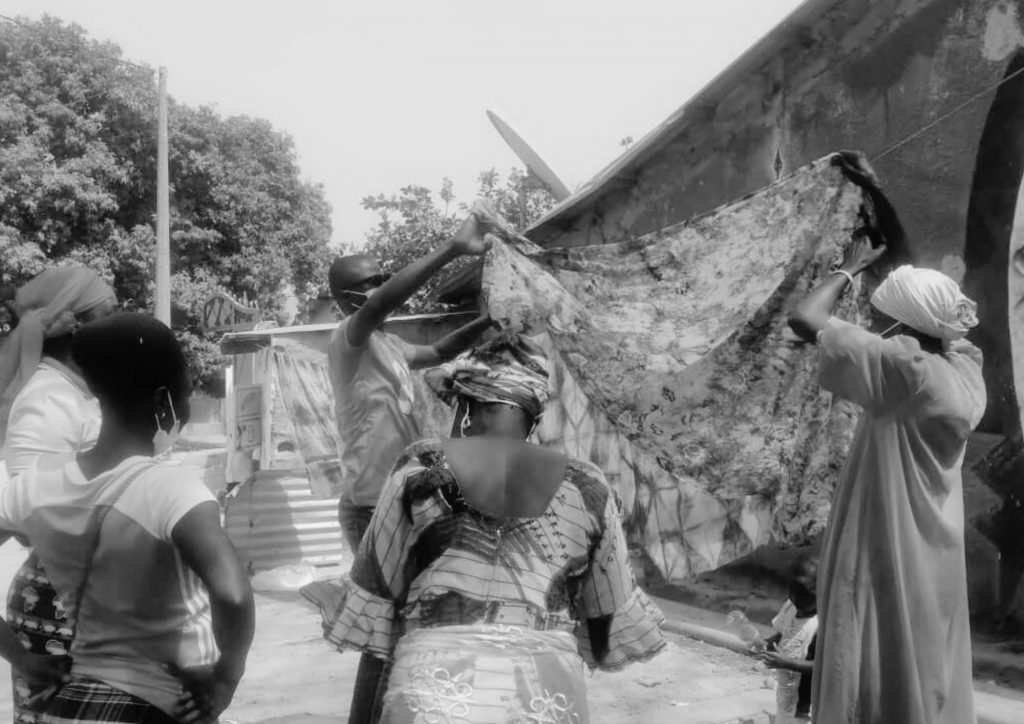Community-Based Heritage Skills Training in Galloya: A Case Study in Women’s Empowerment through Traditional Textile Arts
At HERITΛGE we are happy to see our work create a lasting impact. We are particularly pleased to share a new initiative in The Gambia, the Galloya Street Art Tie & Dye and Batik Training for Women’s Empowerment, organised by Malick Kujabi. Malick is our focal representative in The Gambia and a HERITΛGE trainee himself. He has completed the Training of Trainers (ToT) programme, that HERITΛGE delivered to 30 individuals in the framework of HerMaP Gambia, an initiative to up-skill the country’s heritage, tourism, and sports sectors, co-funded by the European Union.
Malick’s recent training initiative is an inspiring example of how traditional craft skills can be mobilized to promote both cultural continuity and socio-economic development.
Project Overview
Implemented over a three-week period in the village of Galloya, close to the capital Banjul, the training focused on equipping 10 women with practical skills in Tie & Dye and Batik—textile techniques deeply rooted in West African visual culture. The workshop was structured around both technical instruction and applied learning, progressing from basic fabric preparation and design to advanced dyeing techniques, product finishing, and business development.
The training culminated in a community exhibition that not only served to showcase the participants’ work but also reinforced the social value of the craft within the broader community.
The initiative aimed to preserve and transmit traditional textile techniques, foster women’s economic empowerment through skills development, encourage entrepreneurship at the community level, and promote wider community engagement through participatory arts practices.
The training approach combined hands-on instruction with peer learning and included sessions on product design, branding, and marketing strategies. This integration of heritage practices with entrepreneurial training reflects a growing recognition of the role of cultural heritage in sustainable development frameworks.
Sustainability was at the core of the project design. Beyond the immediate training, participants will receive ongoing mentorship aimed at supporting micro-enterprise development. Plans are also underway to facilitate the formation of a cooperative to provide long-term support, market access, and collective visibility for the women’s products.
“This case highlights the potential of grassroots training initiatives to link cultural heritage preservation with social and economic development,” said Denise Navarro, HERITΛGE project manager for The Gambia. “The Galloya workshop demonstrates how ToT programmes can enable participants not only to internalise heritage practices but also to adapt and transmit them in ways that meet present-day needs.”

